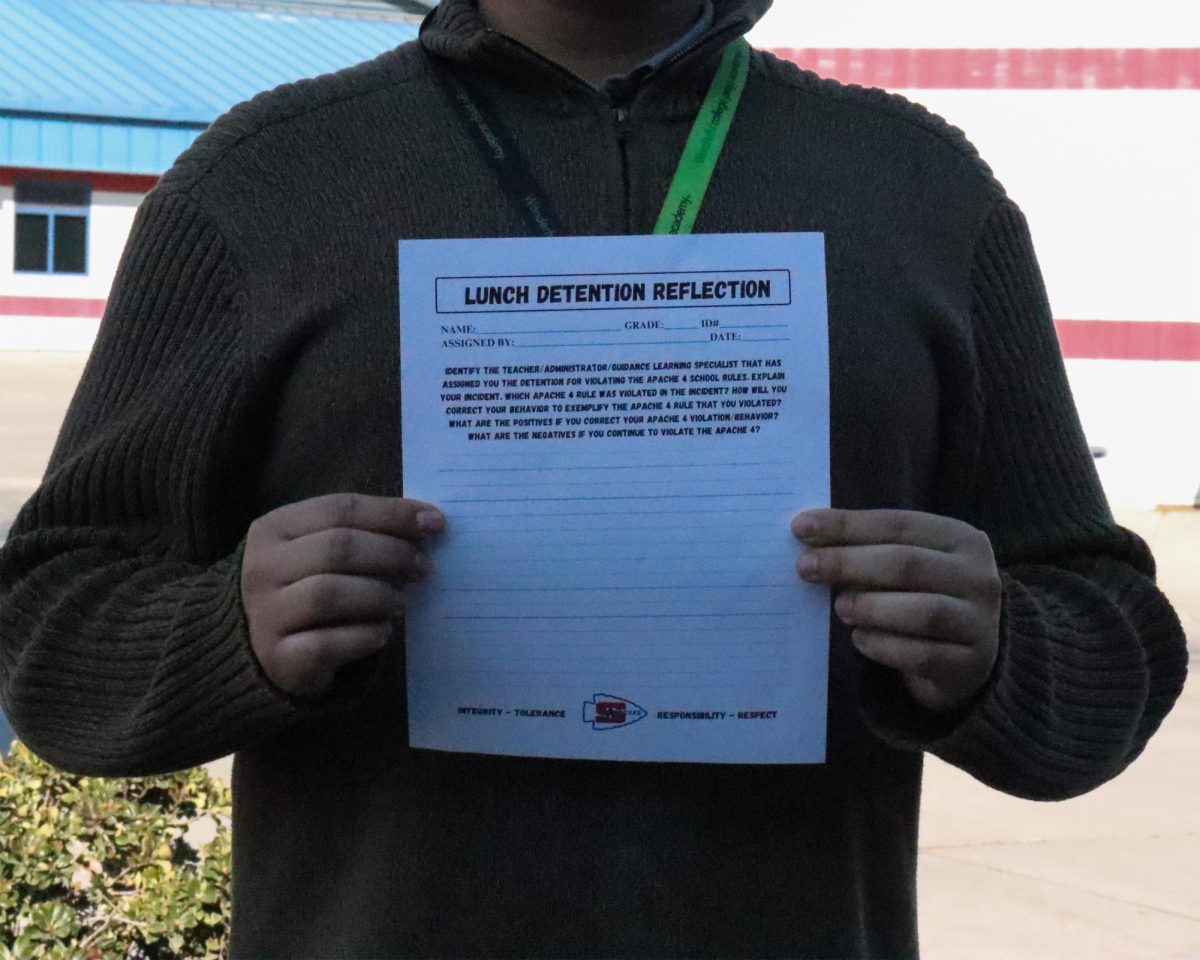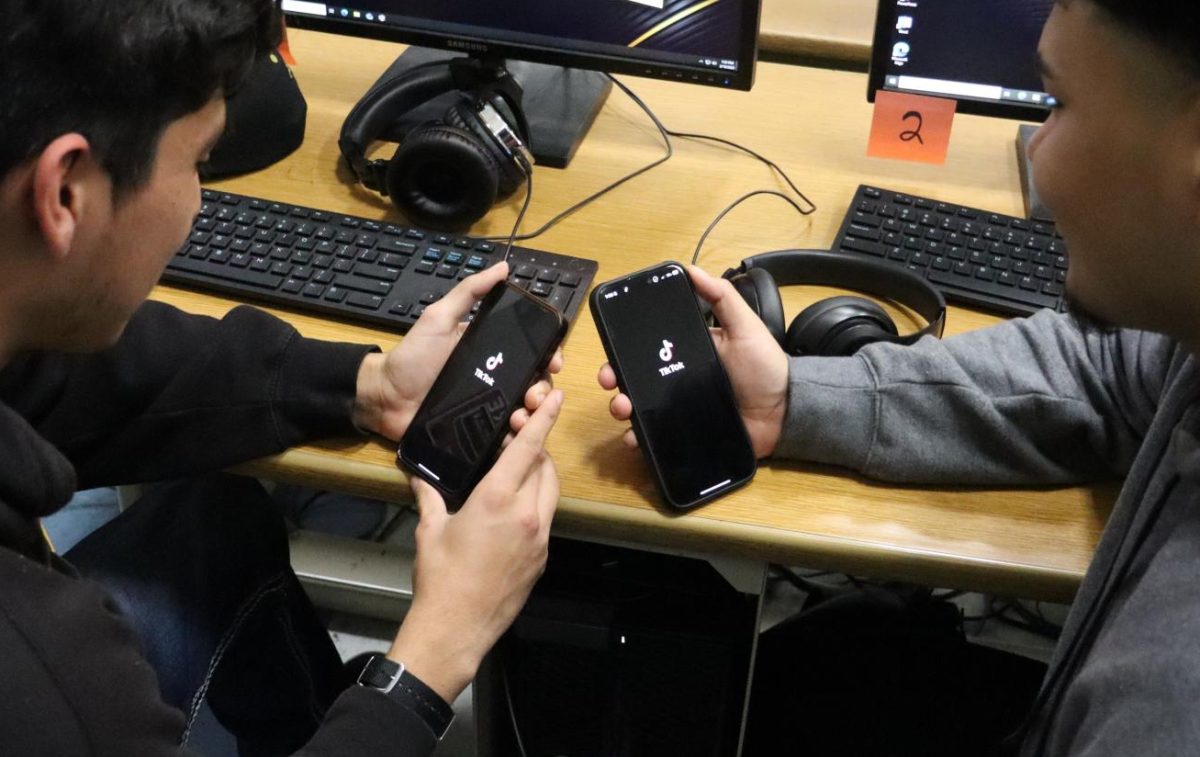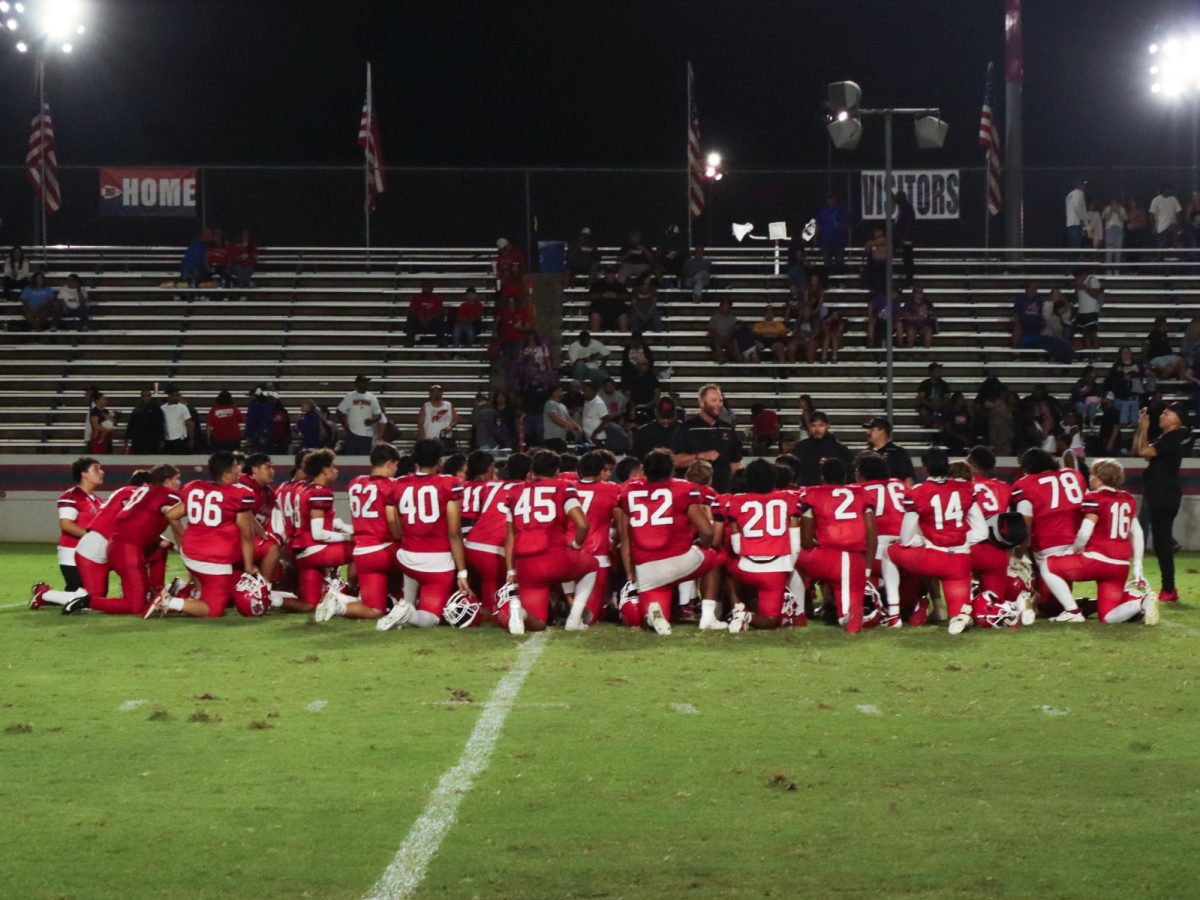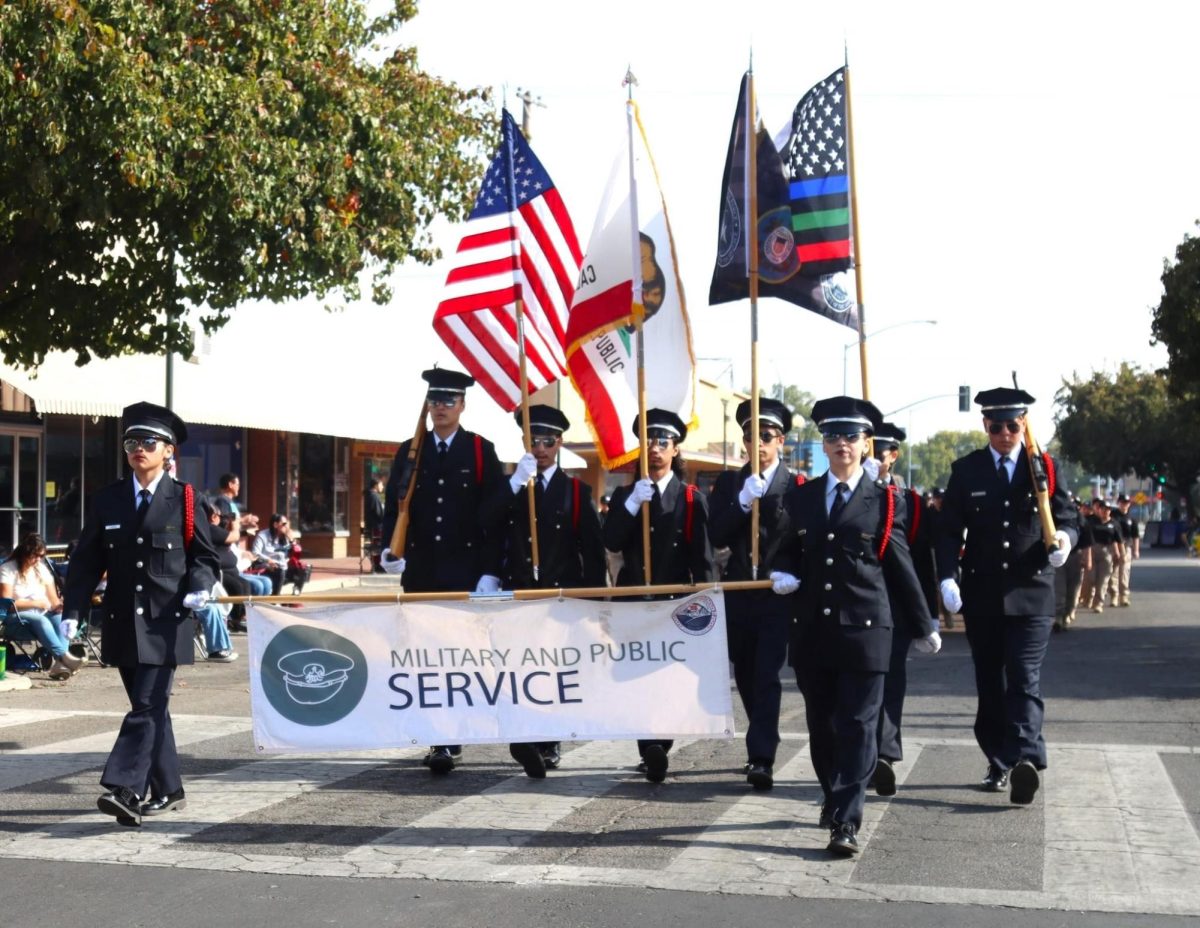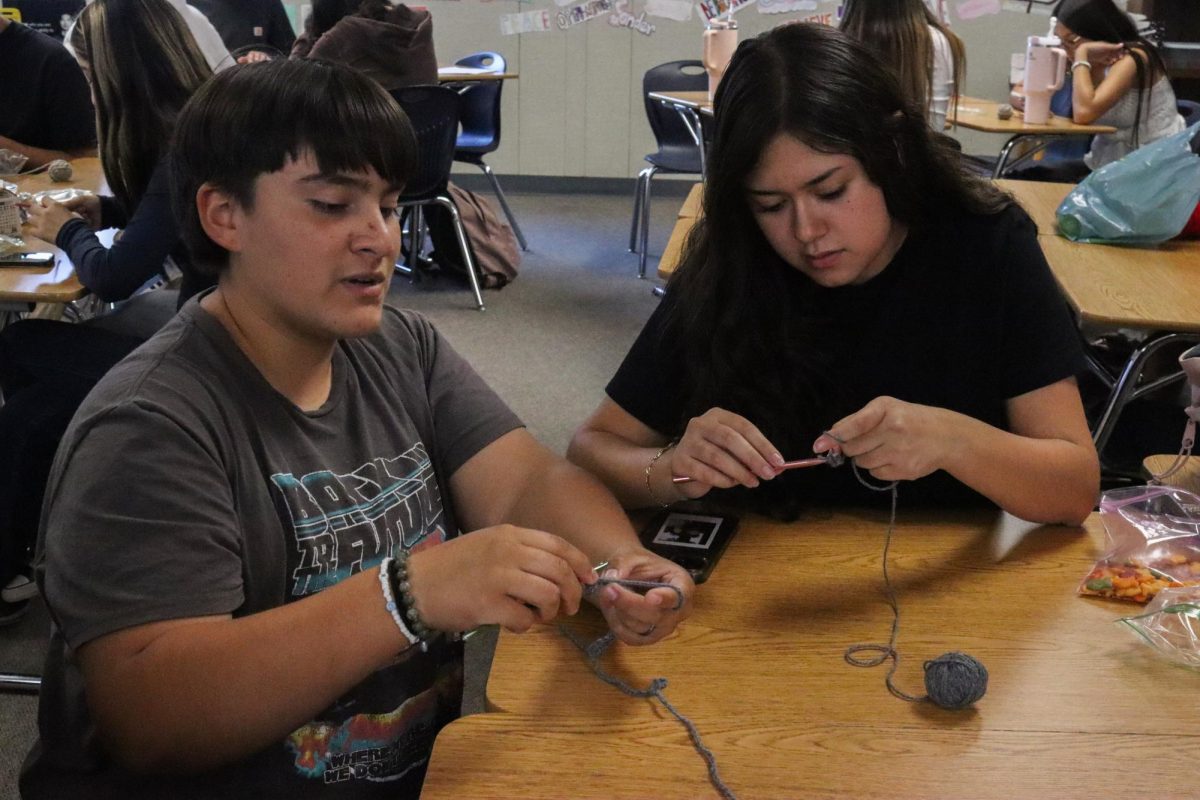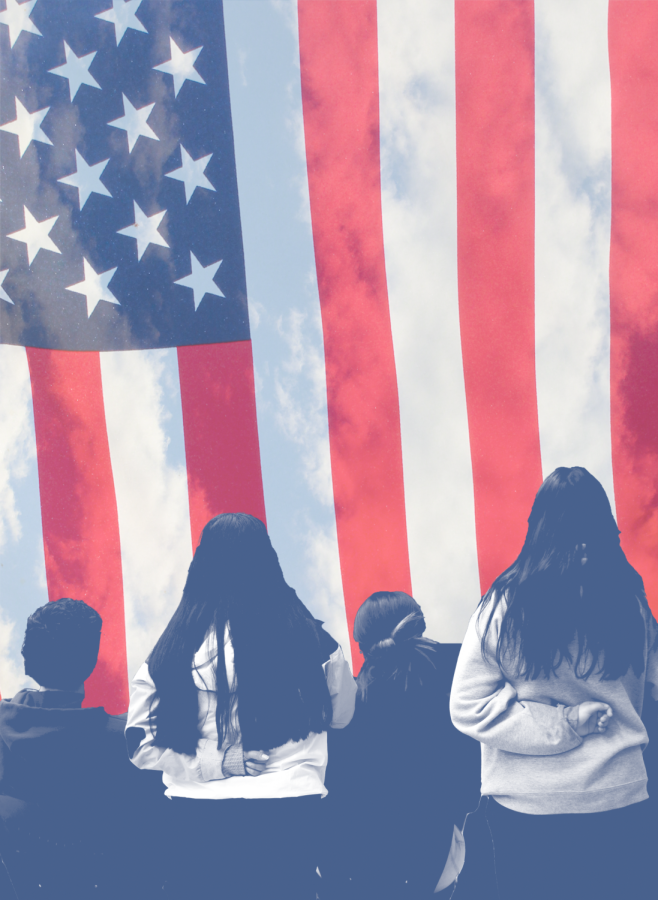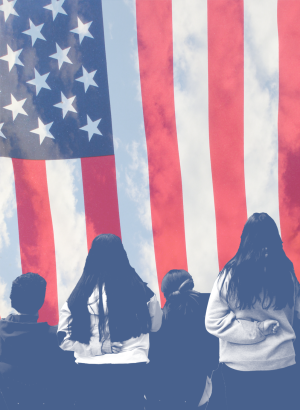Students are not obligated to stand for the Pledge of Allegiance
April 13, 2023
At the signal put your hands to your side, face the flag and after reciting “to my flag” raise your right arm toward the flag and keep it there until the end of the affirmation. Ready, all together now: “I pledge allegiance to my Flag and the Republic for which it stands, one nation, indivisible, with liberty and justice for all.”
The pledge of allegiance was first written in 1892 by a former priest named Francis Bellamy who wrote the pledge with the intent to capture the American spirit and what it meant to be a “true American.” Just over 30 years later, the pledge was altered and the words “the Flag of the United States of America” was added to put emphasis on the country the pledge is for.
Then in 1954, the pledge was revised for its last time with the words “under God” being added due to America not wanting to be associated with Soviet communism, which led to the pledge we have and use today.
But if we don’t live in a monarchy, why should it be mandatory to all stand together in unison and robotically recite a pledge to our country’s flag? Especially when it is a country that prides itself on freedom, individuality and being able to practice any religion of your choosing – being forced to stand for and recite the pledge fundamentally goes against all of those ideas.
However, when it comes to the pledge and its wording it seems to be almost like a business proposal, in the context that America will promise to be a united nation that is fair to all of its citizens no matter their religion or cultural background as long as you are a citizen who believes in God and promises to worship a flag that represents said country. So how are we supposed to hold up our end of the bargain when the country doesn’t?
The pledge only focuses on one religion instead of all religions that are practiced in America, and when reciting the pledge, it becomes clear only one is truly acceptable.
The pledge also states that there is “justice for all,” but the reality is that injustice is happening all over our country. With the recent police brutality, overturning of Roe V. Wade, and LGBTQ+ rights being compromised; it’s these basic human rights that should be thought of when we recite a promise to a country that is supposed to protect us from injustice. It just doesn’t seem to be fair that we should have to stand and respect some tradition that is entirely hypocritical.
Although some stand out of respect for veterans, active soldiers and people lost in combat; what about those who lost their lives to unlawful police officers or the amount of women who may lose their lives because they don’t have access to certain safe medical treatment options.
These soldiers fought and lost their lives fighting for our freedom, while these citizens lost their lives to injustice. Who would we be as a country if we didn’t utilize the freedom that was fought for us? Being able to have the choice to stand or sit exercises that right that was gratefully fought for.
Not only that, but when immigrants choose to come to America to chase the “American Dream,” they are instead faced with having to go through a long process that includes a test to determine whether or not they are fit to be a citizen. After they pass the test, they will then have to state an oath of allegiance that was originally written by a person who saw immigrants as “dull-witted and frantical” and fought to keep them out of America, according to an article published by the Washington Post.
Students sitting for the pledge does not mean that they are disrespectful or uneducated; it can range from protesting based on religion, police brutality or human rights being challenged. Or sitting can just mean that they don’t want to stand, all reasons well within their rights as Americans. Overall, standing for the pledge of allegiance is not mandatory nor is it a law, but it is our right as American citizens to choose to sit no matter the reasoning behind it, just as it is your right to choose to stand.


